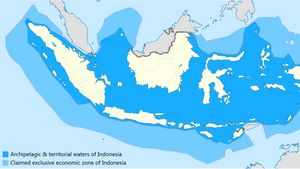JAKARTA - One of the issues that is being hotly discussed is the move taken by the Ethereum Foundation, which recently sold a number of Ether (ETH) tokens rather than choosing to stake. Responding to emerging questions and criticisms, Vitalik Buterin, co-founder of Ethereum, provides an explanation of the reasons behind this policy.
It all started with a post on social media on October 25, where Buterin shared a roadmap for universal light client verification on Ethereum. In the conversation, a user questioned Buterin's decision to continue selling ETH, referring to the small sales reported recently. Buterin quickly replied that he had not sold any ETH tokens in the past month and instead saw an increase in his asset holdings.
Reporting from Crypto Potato, responding to questions from other community members regarding the Ethereum Foundation's position, Buterin explained several reasons why the organization regularly sells part of their ETH deposits. One of them is to pay the researchers and developers responsible for various advances in the network, including the EIP-1559 proposal which has succeeded in reducing transaction time and network costs.
Buterin added that the funds raised from the sale of these tokens were also used to support zero-knowledge technology for privacy, account abstraction for user security, and various events promoting Ethereum globally. He stressed that these efforts have helped improve blockchain security and stability, with no downtime recorded since 2016.
SEE ALSO:
According to data from blockchain analytics platform Scopescan, the Ethereum Foundation has sold 4.066 ETH with a market value slightly above 11 million US Dollars (Rp173 billion). With the current level of staking returns reaching 3.1%, the organization is expected to reach around 20.08 million US Dollars (Rp316 billion) per year if they stake over the 271,000 ETH they reported.
However, Buterin explained that one of the main reasons why organizations are not staking is to avoid "official options" in the event of a controversial hard fork. "We don't want to be in a situation where we are forced to make an 'official choice' if there is a controversial hard fork," said Buterin.
He argued that they wanted to maintain Ethereum's decentralized etos by allowing other entities to staking on behalf of the network. Thus, no single institution has an excessive influence on blockchain. Therefore, the organization's preference remains on direct development and operation funding, which according to Buterin is more in line with Ethereum's long-term goals.
This ETH sales policy is not only about the financial aspect, but also about the core values held by Ethereum. In the crypto community that is often overshadowed by volatile market sentiment, the decision not to stake provides space for developers and other entities to contribute without the dominant influence of the Ethereum Foundation.
The English, Chinese, Japanese, Arabic, and French versions are automatically generated by the AI. So there may still be inaccuracies in translating, please always see Indonesian as our main language. (system supported by DigitalSiber.id)
















